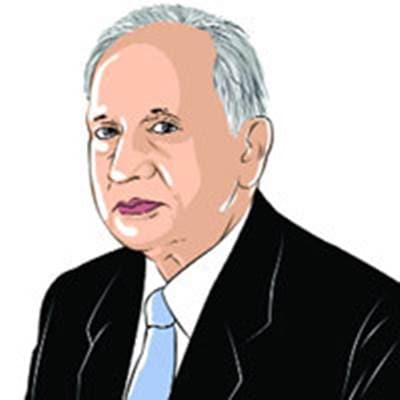Opinion Us and them
On the eve of Bangladesh Prime Minister Sheikh Hasinas ongoing visit to India,the media highlighted a recent development in her countrys judicial spectrum.
On the eve of Bangladesh Prime Minister Sheikh Hasinas ongoing visit to India,the media highlighted a recent development in her countrys judicial spectrum. The event was projected as revival of secularism in Bangladesh,which had begun as a secular country but had later proclaimed Islam as the state religion. The Constitution of the country,it was said,will now have to be cleansed of this anachronistic provision,as also of its prefatory invocation Bismillah-ir-Rahman-ir-Rahim (in the name of God,the Compassionate,the Merciful). Heres some historical perspective:
Sixty-three years ago,a group of politically overambitious Muslim leaders of the pre-Independence era had procured the unfortunate partition of the country,ostensibly in the name of religion. When the process of Constitution-making began,some political circles on both sides of the border looked for a special legal status for their respective majority religions. Indias great leaders like Gandhi,Nehru and Azad dismissed the idea with an iron hand and firmly opted for a secular polity. This was not surprising,but amazingly the founder of Pakistan too,sidestepping his political plank of two-nation theory,virtually declared that it would be a secular state. India adopted a secular Constitution but its concept of secularism was different from the western stereotype. It proclaimed equality of all citizens with no religion-based discrimination but did not erect a US-type wall of separation between the state and religion so as to bar the former from intervening in the affairs of the latter. On the other side of the border,Jinnahs secular posture did not go well with his countrys religious leaders who,after his demise a year later,began forcing their views on the people. When a Constitution was finally adopted in 1956,besides declaring Islam as the state religion,it also enshrined other Islamic provisions.
India and Pakistan could scarcely make peace. Verbal tirades had been going on since the beginning; in later years there were two actual wars. As time passed,the two-nation theory fell flat in Pakistan and internal linguistic prejudices led to the division of the country in 1972. Constitution-makers of the newly created state of Bangladesh were naturally influenced by Indias political ideology the country which had been for them a morale-booster if not a proactive supporter. They built a Constitution based on the Indian pattern of secularism enveloping equality of all religions but imposing no ban on state intervention in religious affairs. Since Bangladesh had walked out of Pakistan on the issue of language not religion its religious leaders were not pleased with the absence of any special status for Islam under the Constitution. On the other hand,the new state had inherited Pakistans passion for military rule. Soon the country had military rulers who began issuing martial law orders and amending the Constitution. To garner support of religious circles for their actions,they prefixed to the preamble in the Constitution the Islamic invocation Bismillah-ir-Rahman-ir-Rahim and added that Islam is religion of the State but other religions can be peacefully practiced.
In 1979 the 5th amendment to the Constitution safeguarded all the martial law orders issued by then,including one by which an Italian companys property in Dhaka had been forcibly acquired. The company filed a writ petition in the High Court which declared the entire 5th amendment ultra vires,but on the governments appeal the Supreme Court stayed the decision till its own verdict on the case. Recently,the court allowed the new government to withdraw the appeal,rendering the stay on the High Court decision ineffective. It is the impact of this development that the media has projected as revival of secularism. But nothing of the sort is going to happen. The insertion of Bismillah and the description of Islam as state religion were not under challenge in the High Court and the court had clarified in its judgment that good actions of the martial law regime need not be upturned. It has now been officially affirmed that the prefatory Bismillah and verbal allegiance to Islam both will remain in the Constitution,asserting that despite these Bangladesh will be a secular country.
I hold no brief for the practice of adopting a state religion anywhere. But if the secular character of the Indian Constitution is not tarnished by its religious concessions a mandate to the state for the protection of cows (obviously due to the majority communitys reverence for it),including Sikh kirpan-wearing as a fundamental right,and specifying state grants for the upkeep of certain denominational temples in Tamil Nadu and Kerala Bangladeshs claim that the Islamic invocation to God and the verbal description of Islam as religion of State in its Constitution does not detract from secularism cannot be summarily dismissed.
The real impact of the revival of the Bangladesh High Courts decision should be that the mixing of religion with politics would no longer be permissible. But will anybody take heed? Certainly,the impact of the Indian Supreme Courts judgment in the celebrated S.R. Bommai case of 1994 should have been similar. Has anyone ever bothered?
The author is a senior professor of law & former Chair of National Minorities Commission.


